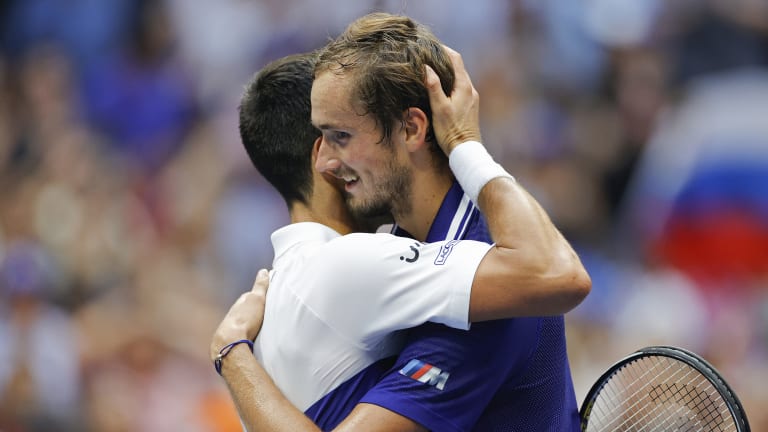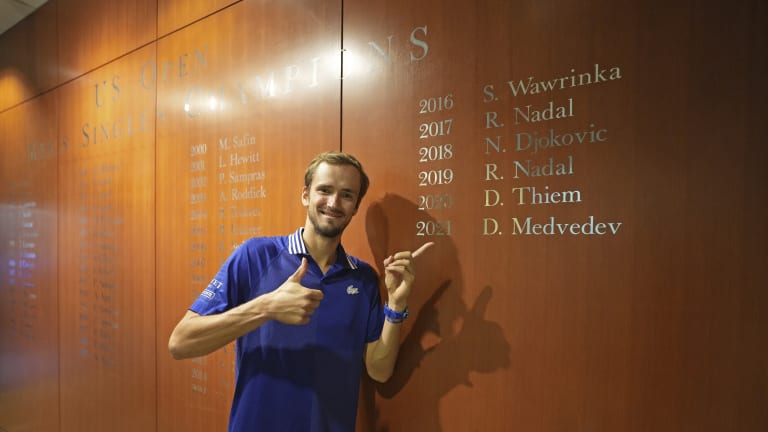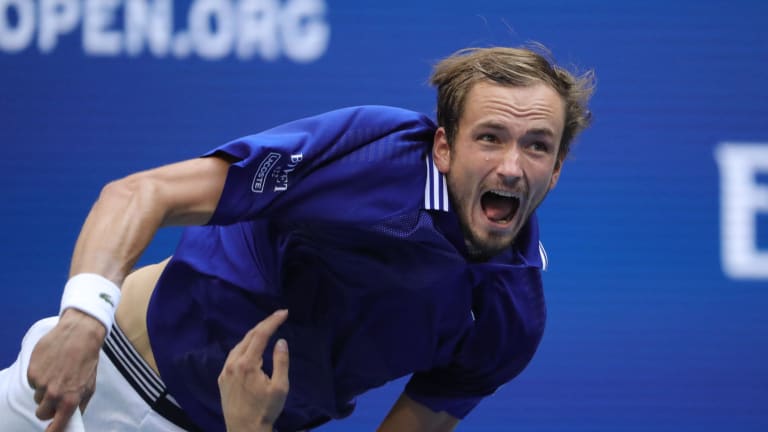US Open
Med Man: Daniil Medvedev makes history of his own in stunning US Open final defeat of Novak Djokovic
By Sep 13, 2021US Open
US Open revamps mixed doubles format, adds $1 million prize to incentivize "biggest names in the sport"
By Feb 11, 2025US Open
US Open adds a 15th day, moves to Sunday start in 2025
By Jan 29, 2025US Open
Post-2024 US Open WTA storylines: The Age of Aryna; what's next for Swiatek and Gauff?
By Sep 09, 2024US Open
Post-2024 US Open ATP storylines: The race between Alcaraz and Sinner for No. 1 ... and more
By Sep 09, 2024US Open
Jannik Sinner’s US Open title run won’t clear the air around him entirely
By Sep 09, 2024US Open
Taylor Fritz fails in US Open final, but hope springs for American men's tennis
By Sep 09, 2024US Open
Jannik Sinner storms to second major title, defeats Swift, Kelce-backed Taylor Fritz at US Open
By Sep 08, 2024US Open
Jessica Pegula's willingness to take chances paid off at the US Open
By Sep 08, 2024US Open
Aryna Sabalenka won her first US Open by learning from her past heartbreaks in New York
By Sep 08, 2024Med Man: Daniil Medvedev makes history of his own in stunning US Open final defeat of Novak Djokovic
It took a one-of-a-kind player to stop a Grand Slam coronation at the last possible moment.
Published Sep 13, 2021
Advertising
Advertising

After winning in straight sets, Medvedev called Djokovic the greatest tennis player of all time.
© Getty Images
Advertising

Medvedev joined 2020 titlist Dominic Thiem in breaking through for his first major at Flushing Meadows.
© 2021 United States Tennis Association
Advertising

Medvedev's serve, like pretty much every part of his game, is like no other.
© AFP via Getty Images